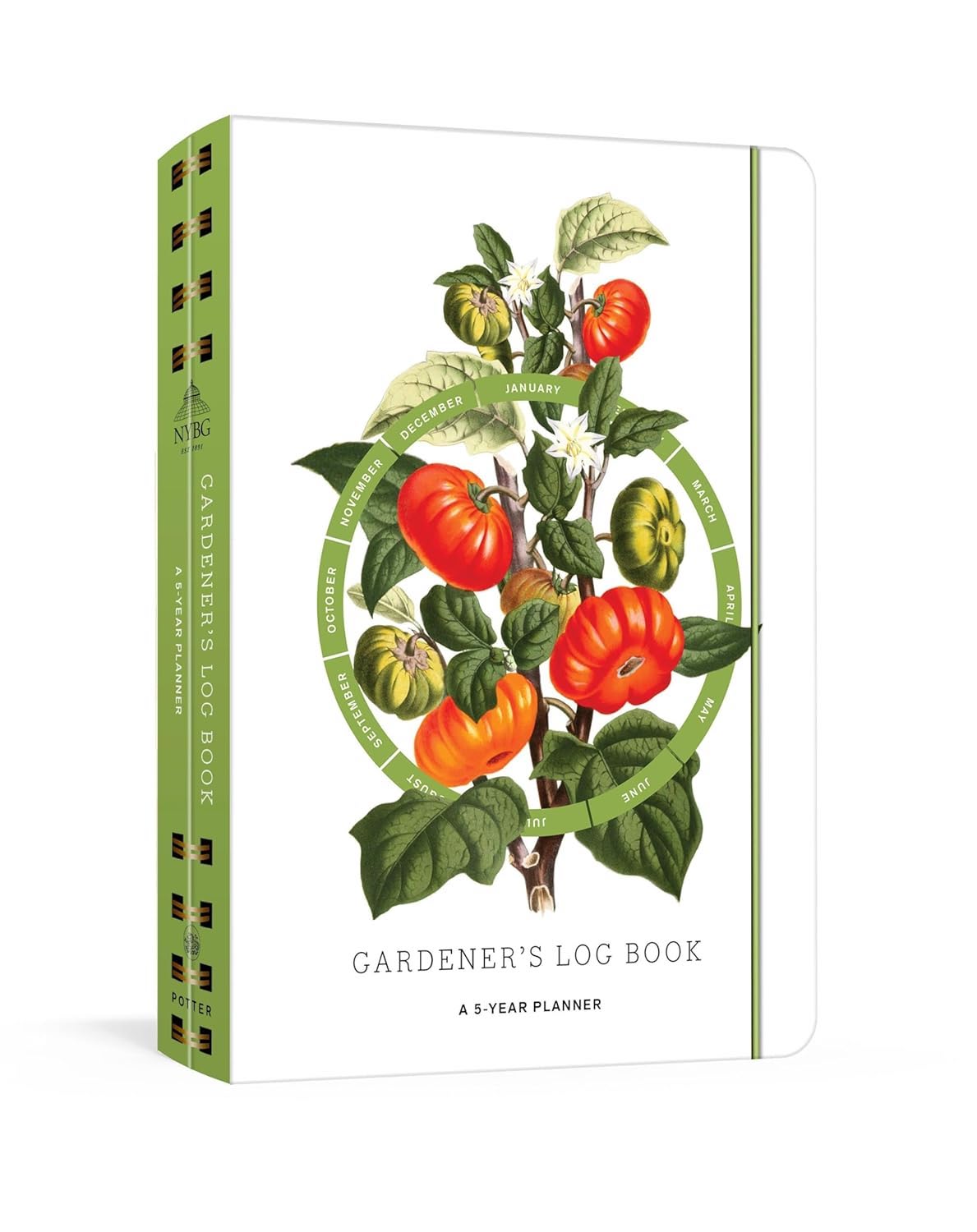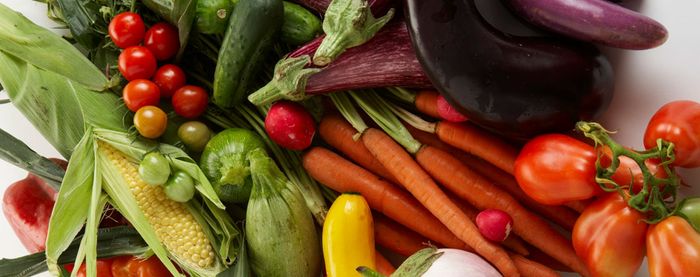Great New Tomato Varieties
Everyone knows about ‘Early Girl’ and ‘Big Boy’, but these recent introductions give those staples some serious competition

In the last 10 years, tomatoes have undergone a renaissance of sorts. The number of new varieties filling the pages of seed catalogs is mind-boggling, even for a tomato breeder like me. Some are simply novelties, rightfully forgotten the following year. But some are truly wonderful. Unfortunately, many folks are stuck in a rut when it comes to choosing tomato varieties—planting the same predictable ‘Big Boy’ or beefsteak types year after year. Those are fine, but why not try a few more recent introductions this year—especially if they are tastier and have a higher yield than the traditional staples? The following are seven outstanding new tomato cultivars that have proven themselves to be worthy of a spot in your garden.
‘Barry’s Crazy Cherry’ tomato
Gives you a crazy amount of fruit

This variety produces more tomatoes than you can possibly eat, and it grows successfully practically anywhere. In fact, I’ve literally seen this variety growing in the cracks of a sidewalk and still produce fruit. I’ve also witnessed it growing well near the cool Pacific Ocean and thriving in the hot desert at 5,000 feet. It truly will grow in just about any climate.
‘Barry’s Crazy Cherry’ is a multiflora (meaning having many blooms) variety. Many huge trusses, each containing hundreds of flowers, give way to crazy clusters of sweet fruit. After ripening, the tasty yellow gems can hang on the plants for weeks, staying edible and evading mealiness and going from sweet to sweeter as time passes. This is an easy-to-grow, early-to-produce variety.
Days to maturity: 65–70 | Type: Indeterminate
Tip: Pick a day or two before they’re fully ripe. Tomatoes picked a couple of days early and ripened at room temperature for a couple of days out of the sunlight can be as good as vine-ripened.
‘Pink Berkeley Tie Dye’ tomato
Has good looks and production

‘Pink Berkeley Tie Dye’ might be my very favorite tomato variety. It’s also been my best-selling variety for both seed and plants for a few years now. Although it will do well in an array of climates, it truly thrives in cooler areas—while producing tasty, large tomatoes. This is welcome news for gardeners in these zones who often settle for cherry tomatoes only. Each plant is fairly compact for an indeterminate type, too, typically reaching just 4 to 5 feet tall.
The fruits are showy: port wine-colored with metallic green stripes. The flavor is rich, slightly sweet, while containing earthy notes. For this reason, ‘Pink Berkeley Tie Dye’ has won several taste competitions. This beauty is typically one of the first large tomatoes to ripen in my garden, averaging about 8 to 12 ounces per fruit. Production of the plants is very good and dependable, creating a great reliable output each season.
Days to maturity: 70 | Type: Compact indeterminate
‘Orange Jazz’ tomato
The offspring if a peach and a tomato had a baby

‘Orange Jazz’ is a lovely and meaty orange-fleshed beefsteak with a sweet and fruity flavor. Each fruit can be large, averaging ½ to ¾ pound, with many approaching 1 pound. The production is very good on this midseason beauty. The fruits are smooth, though slightly ribbed, and taste like they have a hint of peach flavor. Plants produce a high number of blemish-free tomatoes to harvest. ‘Orange Jazz’ plants can grow fairly large in fertile soils (6 feet or taller), so you’ll need to use tall stakes or cages to help support them.
Days to maturity: 85 | Type: Indeterminate
‘Haley’s Rainbow’ tomato
On the cutting edge of new tomatoes

Have you ever wondered what would happen if you took several great tomato varieties and crossed them over multiple seasons? This is what breeder Dean Slater did when he came up with ‘Haley’s Rainbow’. In a quest for the unusual, he crossed varieties with high production, striped skin, bicolored interior, and heart-shaped fruits. For an added twist, he threw varieties in with potato leaves and variegated foliage along with dwarf growth habitats.
The results have been very exciting, and although this variety is still being stabilized by saving seeds from the best offspring over multiple generations, it offers a glimpse into just how exciting the tomato future is. The plants are gorgeous, sporting bright green leaves with splashes of creamy white variegation. The fruits of ‘Haley’s Rainbow’ are equally stunning with orange-red skin and juicy, beefsteak-like flesh. Keep an eye out for this variety as it becomes more readily available.
Days to maturity: 75–80 | Type: Indeterminate
Tip: Do not refrigerate. Chilling the fruit will stop ripening, and it will ruin the flavor and texture of tomatoes (even the ripe ones).
‘Pit Viper’ tomato
One stout tomato plant

This is a small plant with big, beautiful, tasty tomatoes. Not everyone has room for large, indeterminate tomato plants, so this dwarf variety is the perfect alternative for smaller gardens and containers. Dwarf varieties (which are usually determinate types) are not new to the tomato world but most produce small, red, tasteless fruits. Tomato breeder Blane Horton fixed this problem by crossing the right varieties and by making good selections. Through years of work, he developed ‘Viper’, whose plants typically grow 3 to 4 feet tall and have stocky, thick stems with extra wide leaves. You’ll harvest large amounts of beautiful, 4- to 6-ounce striped tomatoes with a multicolored interior. Because ‘Viper’ is an indeterminate type, it will produce all season long, unlike determinate types.
Days to maturity: 75 | Type: Dwarf indeterminate
‘Black Beauty’ tomato
Is delicious and nutritious

Anthocyanins (pigments that are responsible for purples and blues in plants, particularly in leaves, stems, and fruits) are flavonoids and known to have antioxidant properties. They have been most commonly found in blueberries and blackberries—until now. Recently, wild tomato varieties have been discovered with high anthocyanins and are now being used as parents in tomato breeding projects. ‘Black Beauty’ is one of the amazing and impressive results. Besides the potential of creating a more nutritious tomato, the looks and flavor of this variety are nothing short of astounding. Young green fruits will eventually turn a beautiful amethyst color. And as the fruits mature, they have the potential to turn almost completely black, weighing in at an average of 6 to 10 ounces.
This variety demands a well-deserved bow every time I walk past it in the garden. To make it even more special, it is as rich-tasting as any tomato I have eaten. The meaty flesh is incredibly smooth with low acid, yet full of flavor. I get a very generous production from this variety, accompanied by the incredible bonus of its ability to remain on the vine ripe for several days without getting soft or mealy. It even stores well at room temperature after harvest—sometimes up to two weeks or more. They are also sunscalded and crack-resistant.
Days to maturity: 80 | Type: Indeterminate
Tip: Allow blue tomatoes some extra time. Varieties with anthocyanin like ‘Black Beauty’ can take longer to ripen.
‘Cherokee Green’ tomato
Has a flavor all its own

This variety was a color mutation discovered on a ‘Cherokee Purple’ plant by Craig Lehoullier, a well-respected tomato breeder. Mutations are natural but uncommon. When that single ‘Cherokee Purple’ plant in Craig’s garden mutated colors, it also changed flavor profiles because different interior flesh colors produce different tastes. The lime green flesh of ‘Cherokee Green’ has an excellent, sharp, almost spicy tomato flavor. Unripe green fruits turn a bit amber as they ripen. You can expect a dependable, midseason harvest of 6- to 10-ounce tomatoes that many folks call their favorite green variety.
Days to maturity: 70 | Type: Compact indeterminate
Tomato pests to watch out for
It isn’t just the hornworm
Several other beasts can wreak havoc on your plants and fruit. Here are some notorious perpetrators and how to stop them.
Squirrels and chipmunks
 These cute and furry creatures take on a new look when they steal your precious tomatoes. Building a solid framework with chicken wire sides is an option, but it can be timely, costly, and hard to workaround. Keep in mind any structure you build to shield squirrels from your bounty will be tested from top to bottom, as squirrels can be determined. Hiding your tomatoes with a small piece of the sheet (the same method for the birds) can be effective. This will depend on just how hungry or determined your local population is.
These cute and furry creatures take on a new look when they steal your precious tomatoes. Building a solid framework with chicken wire sides is an option, but it can be timely, costly, and hard to workaround. Keep in mind any structure you build to shield squirrels from your bounty will be tested from top to bottom, as squirrels can be determined. Hiding your tomatoes with a small piece of the sheet (the same method for the birds) can be effective. This will depend on just how hungry or determined your local population is.
Motion-activated sprinklers have proven to hold off squirrel intruders for me and have the ability to scare away larger mammals like deer, opossums, and raccoons, too. They use an infrared motion sensor that detects pests and scares them with short blasts and sounds of water from a sprinkler. Be sure to point sprinklers so that water does not spray onto your tomato plants, if possible. Also be sure to turn sprinklers off before wandering into the garden early in the morning. I can tell you firsthand that sudden sounds and bursts of water when you don’t expect them is frightening.
Colorado potato beetle
 This guy is also known as the 10-striped potato beetle. In large numbers, they cause a lot of damage. Creating a barrier using a floating row cover over your plants can block their access, though. Mulching with straw can make it difficult and confusing (they don’t like crossing over it) for them to get to your plants and lower their numbers. Spraying organic neem oil just after sunset helps deter the beetles from attacking, too. This time of day seems to be when the beetles are most concentrated on plants and the evaporation rate is lower. Be sure to spray the entire plant, including underneath the leaves and around the base.
This guy is also known as the 10-striped potato beetle. In large numbers, they cause a lot of damage. Creating a barrier using a floating row cover over your plants can block their access, though. Mulching with straw can make it difficult and confusing (they don’t like crossing over it) for them to get to your plants and lower their numbers. Spraying organic neem oil just after sunset helps deter the beetles from attacking, too. This time of day seems to be when the beetles are most concentrated on plants and the evaporation rate is lower. Be sure to spray the entire plant, including underneath the leaves and around the base.
Birds
 Certain varieties of birds can wreak havoc on a ripening tomato crop. Birds feed by sight, so scaring them away and hiding your tomatoes are options. I have had good luck placing rubber snakes near ripening fruit. The results have been mixed using shiny strips of Mylar, scarecrows, and plastic owls. Birds tend to get used to scare tactics so adjusting the location and presentation really helps. I had a plastic owl on a tall stake that worked for several weeks but soon lost its effectiveness. I moved it to the ground, slightly hidden under the tomato plants and it worked great—birds almost lost their feathers fleeing the garden. I’ve also had very good luck hiding my tomatoes from birds. My preferred method is to cut small squares from an old sheet and clip or tie them on the outside of ripening tomato clusters. Out of sight, out of mind for birds.
Certain varieties of birds can wreak havoc on a ripening tomato crop. Birds feed by sight, so scaring them away and hiding your tomatoes are options. I have had good luck placing rubber snakes near ripening fruit. The results have been mixed using shiny strips of Mylar, scarecrows, and plastic owls. Birds tend to get used to scare tactics so adjusting the location and presentation really helps. I had a plastic owl on a tall stake that worked for several weeks but soon lost its effectiveness. I moved it to the ground, slightly hidden under the tomato plants and it worked great—birds almost lost their feathers fleeing the garden. I’ve also had very good luck hiding my tomatoes from birds. My preferred method is to cut small squares from an old sheet and clip or tie them on the outside of ripening tomato clusters. Out of sight, out of mind for birds.
Slugs and snails
 To get rid of these slimy threats, you’ll need to take a couple of steps. First, clear the garden of hiding places, such as plant debris, branches, or piles of leaves. Second, go out at night (when snails and slugs are most active) and handpick them off your plants. After a few nights, the population will be reduced substantially. Finally, you can use baits and traps (sold at garden centers), too, although they are only somewhat effective.
To get rid of these slimy threats, you’ll need to take a couple of steps. First, clear the garden of hiding places, such as plant debris, branches, or piles of leaves. Second, go out at night (when snails and slugs are most active) and handpick them off your plants. After a few nights, the population will be reduced substantially. Finally, you can use baits and traps (sold at garden centers), too, although they are only somewhat effective.
Sources
• Baker Creek Heirloom Seed Co., Mansfield, MO; 417-924-8917; rareseeds.com
• Heritage Seed Market, Bonsall, CA; heritageseedmarket.com
• Johnny’s Selected Seeds, Winslow, ME; 877-564-6697; johnnyseeds.com
• Wild Boar Farms, Napa, CA; wildboarfarms.com
Bradley Gates is a tomato breeder and owner of Wild Boar Farms in Napa, California.
Photos: courtesy of Haley Gates; Danielle Sherry; courtesy of Totally Tomatoes; Blane Horton/courtesy of Wild Boar Farms; Jennifer Benner; Björn Appel/courtesy of commons.wikimedia.org; Alan D. Wilson/courtesy of commons.wikimedia.org; Michelle Gervais
Fine Gardening Recommended Products

A.M. Leonard Deluxe Soil Knife & Leather Sheath Combo
Fine Gardening receives a commission for items purchased through links on this site, including Amazon Associates and other affiliate advertising programs.

Berry & Bird Rabbiting Spade, Trenching Shovel
Fine Gardening receives a commission for items purchased through links on this site, including Amazon Associates and other affiliate advertising programs.

Gardener's Log Book from NYBG
Fine Gardening receives a commission for items purchased through links on this site, including Amazon Associates and other affiliate advertising programs.





Comments
Log in or create an account to post a comment.
Sign up Log in